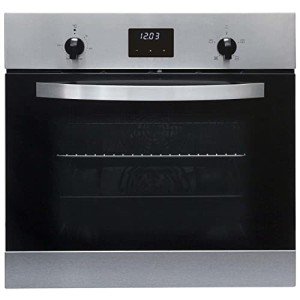Sales Ovens: What's The Only Thing Nobody Is Talking About

The Comprehensive Guide to Sales Ovens: Understanding Their Importance, Types, and Best Practices
Sales ovens, a classification of commercial cooking equipment, are key players in the culinary and foodservice industry. These devices, developed to prepare food in big quantities efficiently, are essential in restaurants, catering services, and other food facilities. This post dives into the importance of sales ovens, their types, and best practices for picking and using them efficiently.
What Are Sales Ovens?
Sales ovens, broadly specified, are cooking devices used primarily in industrial cooking areas to prepare, bake, or heat various food items at scale. Their style enables them to deal with higher volume cooking compared to basic residential ovens. Offered the nature of food service, sales ovens typically integrate advanced technologies that promote speed, performance, and even cooking.
Importance of Sales Ovens in the Food Industry
Sales ovens play a critical role in food production for many factors:
- Efficiency: Sales ovens can prepare food more rapidly and uniformly than conventional ovens, allowing chefs to prepare meals in less time.
- Consistency: With accurate temperature level controls, sales ovens ensure that the food is cooked evenly whenever, keeping quality throughout thousands of portions.
- Adaptability: Many sales ovens can deal with various cooking approaches consisting of baking, roasting, broiling, and even steaming, making them ideal for diverse menus.
- Energy Savings: Modern sales ovens are frequently designed to be energy-efficient, lowering functional costs for businesses.
Kinds Of Sales Ovens
The market offers a range of sales ovens, each suited for specific cooking requirements and types of food. Here are the most typical types:
| Type of Oven | Description | Best For |
|---|---|---|
| Convection Ovens | Utilize a fan to circulate hot air, ensuring even cooking. | Baking and roasting items. |
| Combi-Ovens | A mix of convection and steam cooking, providing versatility in cooking approaches. | Diverse menus needing steaming and baking. |
| Conveyor Ovens | Use a moving belt to continually cook food, perfect for high-volume operations. | Quick food and pizza. |
| Deck Ovens | Feature separate compartments (decks) that can be individually controlled, providing high efficiency. | Craftsmen bread and pastries. |
| Rotisserie Ovens | Developed to slowly roast meat on a spit, providing tender and juicy results. | Roasted meats. |
Choosing the Right Sales Oven
Choosing the appropriate sales oven for a specific business needs consideration of several aspects:
- Volume Needs: Assess the volume of food that needs to be prepared. Higher volume means choosing conveyor or combi-ovens.
- Menu Diversity: Understanding what type of meals will be cooked can guide the choice procedure. For example, a bakery may require a deck oven, while a diner might benefit from a stove.
- Area Availability: Measure kitchen space to make sure the ovens fit properly and have required ventilation.
- Spending plan: Commercial ovens can differ significantly in cost, so develop a budget that thinks about long-term operational cost savings.
- Energy Efficiency: Opt for ovens that have energy ratings to keep energy costs manageable.
Best Practices for Using Sales Ovens
Successfully running a sales oven involves more than simple usage. Here are some best practices to bear in mind:
- Regular Maintenance: Schedule routine upkeep to clean and examine the performance of the oven. This ensures longevity and efficiency.
- Preheating: Always preheat the oven to the preferred temperature level before putting food inside for consistent cooking results.
- Utilize Thermometers: For precision, use an oven thermometer to ensure that temperatures remain consistent, particularly for baking.
- Follow Cooking Times: Adhere to suggested cooking times based on the type of food being prepared. just click the next post may be needed for different ovens.
- Avoid Overcrowding: Ensure adequate area around food items in the oven to permit proper air flow.
The Future of Sales Ovens
As technology advances, so do the capabilities of sales ovens. Developments such as wise technology, energy-efficient designs, and enhanced security features are becoming more popular. These developments assure to improve cooking efficiency while also fulfilling sustainability objectives.
FAQs about Sales Ovens
Q1: How do I tidy my sales oven?
A: Regular cleaning includes getting rid of any food debris, wiping down surface areas with non-corrosive cleaners, and following particular cleaning recommendations from the producer.
Q2: What's the lifespan of a business oven?
A: Typically, a well-kept industrial oven can last anywhere from 10 to 20 years, depending upon use and upkeep.
Q3: Can sales ovens be used for baking?
A: Yes, many types of sales ovens, specifically convection and deck ovens, are particularly developed for baking a variety of items.
Q4: Are there energy-efficient choices for sales ovens?
A: Yes, numerous manufacturers use energy-efficient models that reduce energy usage without compromising efficiency.
Q5: How often should I perform maintenance on my sales oven?
A: It's advisable to conduct routine upkeep checks on a monthly basis or quarter, depending on use levels. Furthermore, a thorough inspection ought to happen a minimum of annually.
Sales ovens are important in the modern-day cooking landscape. Their capability to prepare large amounts of food efficiently makes them vital for dining establishments, catering services, and other food facilities. By understanding the numerous types, selecting the right oven, and adhering to best practices, food service organizations can optimize their cooking processes, enhance their offerings, and ultimately delight their consumers with outstanding culinary creations.

